In 2018, China's retail industry (thematic reading) is changing, the traditional format is changing, new formats are rising, and foreign brands are no longer popular... The retail market presents a new "routine". Winner Network takes stock of the major events of China's retail industry (special reading), reviews the way that China's retail industry has gone through in 2018: department stores continue to close stores, department stores have transformed into shopping centers; a number of foreign brands have completely withdrawn from the Chinese market; merchants have allied with AT giants, accelerating integration online and offline; new retail development is not up to expectations, star restaurants close stores, luxury goods turn to the power line. Upper channel, international fast fashion brand is declining; brand acquisition and mergers are frequent, Chinese brands buy many international luxury brands; local new tea and beverage brands set up overseas collectively; online brands go offline...
1. Continuous closing adjustment of department stores and supermarkets
This year, department stores and supermarkets continue to close their stores. According to statistics from WingShang. com, YongHui, Bugao, Huarun Wanjia, Wumei, Darunfa, Wal-Mart, Carrefour, Bubee Lotus, Yongwang, Baijia Top Ten Supermarket Retail Enterprises have opened more than 300 stores, 16 more than in 2017, an increase of about 4% over the same period last year. At the same time, 44 stores were closed, which was the same as the same period last year. New stores expanded steadily and the adjustment of closing stores continued to be maintained. In addition, the traditional Shangchao began to develop community-based small supermarkets.
In terms of department stores, this year there are Chongqing Parkson Wanzhou store, Guangzhou Guang Bai sun Xintiandi store, Shenyang New World Department Store Zhonghua Road store, Suzhou ocean department store, Shenzhen Tianhong Jun Shang department store, Xiamen Paris Spring Department Store Jiahe store, Guiyang morning department store big West store, Wangfujing store Monument for Liberation shop. When a number of department stores are closed, Yongan Department Store and Hongqiao Friendship Mall in Shanghai will be closed for business adjustment.
Shangchao has adjusted its layout by opening and closing stores quickly. Department stores have more choices to close stores and quit. A few department stores with their own properties have transformed into shopping centers.
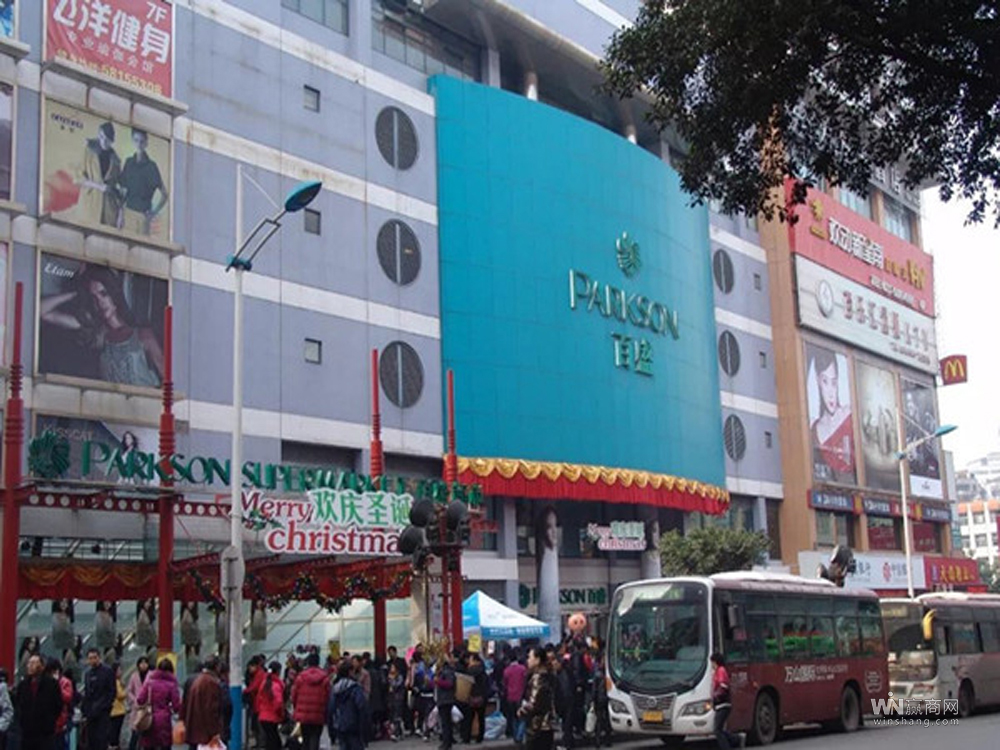
Baisheng Chongqing Wanzhou Shop
2. Foreign Brands Withdrawal from China
This year, a number of foreign brands have failed in China and announced their withdrawal from the Chinese market. Including Messi, Nine West, TOPSHOP, NEW LOOK, Lotte Mart, Lotte Mart, Lotte Mart, and Lotte Department Stores all closed their stores in China this year.
In December, Messi's Skycat Flagship Store announced that it was closing. The store stopped receiving orders from December 3. This means that Macy's department store will withdraw completely from the Chinese market.
In August, Nine West, the United States, closed its flagship Tianmao store and its last store in Beijing. Thereafter, all stores in mainland China, Hong Kong and Taiwan will be closed.
In December, the official microblog of British Fast Fashion NEW LOOK announced the closure of stores in China in the near future. This means that NEW LOOK will officially withdraw from the Chinese market.
On November 1st, TOPSHOP, the British Fast Fashion brand, announced that it would close its flagship store because it did not open a physical store, which meant that TOPSHOP would completely withdraw from the Chinese market.
Lotte Mart withdrew from China this year. The original Chinese stores were sold to Wumei and Liqun, the Chinese retail giants respectively. Lotte will also close all its stores in China in December.
Easy Buy South Korea sold five of China's six stores to Zhengda Group at the end of December last year, leaving one ready to sell. In fact, the withdrawal of business in China has been completed.
Behind the continuous withdrawal of foreign brands from the Chinese market, the main reason is that they are not satisfied with the situation. China's retail model is changing rapidly and iteratively. Foreign brands can only be eliminated by the market if they can not keep up with the pace.
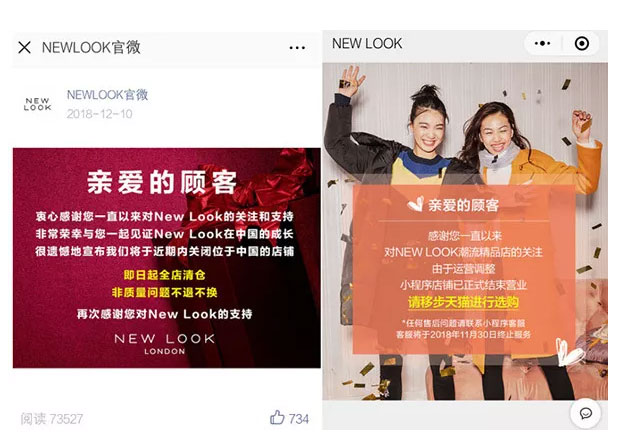
Photo Source: NEW LOOK Official Platform Screenshot
3. Merchant Super Alliance AT giant online and offline accelerated integration
With the development of new retail, offline retailers are speeding up the marriage of "new retail giants" and accelerating their online and offline integration with the help of online giants. At present, Shang Chao's "station team" mainly consists of Tencent and Ali factions, followed by cooperation with Jingdong, Suning and multi-point Dmall. In the first half of this year, Tencent has obvious advantages:
Carrefour signed a preliminary letter of intent for equity investment with Yonghui and Tencent.
Step by step high "hand in hand" Tencent, Beijing-East cooperation in the development of smart retail;
Huarun Wanjia has cooperated with Tencent, Jingdong and American Delivery Group.
Wal-Mart and Tencent reached strategic cooperation, Sam's member stores on-line Jingdong home;
Tianhong and Tencent have reached strategic cooperation.
Liqun shares and Tencent Cloud signed a new intelligent retail O2 O project service agreement;
Yonghui, Baijia and Tencent are married.
In addition, Darun Fat signed a memorandum of strategic cooperation with Suning, and Stepping High, Ren Hao, Zhongbai Warehousing all cooperated with multi-point Dmall...
At present, Yintai, Sanjiang Shopping, Bailian Group, Lianhua Supermarket, Xinhua Capital and Gaoxin Retail have "standing in line" Ali Department, while Yonghui, Bugao, Carrefour, Huarun Wanjia, Wal-Mart, Tianhong and Liqun have joined Jingteng Department.
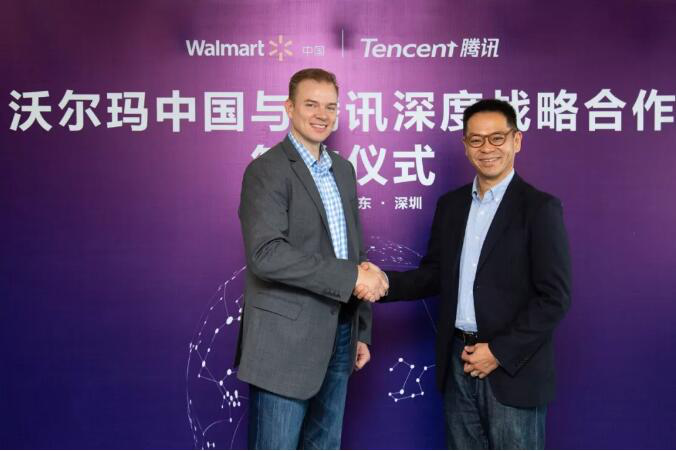
Photo Source: Wal-Mart Media Cente
4. New Retail: Underdeveloped, Real Estate Businessmen Join hands to seize territory
After the first year of the new retail industry, a new wave of opening is coming in 2018. Boxhorse has opened more than 80 new stores, Super Species has opened more than 40 new stores, Jingdong 7FRESH, Suning Jiwu, Xiaoxiang Shengxian and Earth Port have many new stores layout. However, this is far from the expansion plans of hundreds of stores of various brands at the beginning of the year. In the first half of the year, as the "black horse" of the new retail market, five stores in the whole country closed in the fourth quarter, and other brands, apart from individual stores, did not operate well.
New retail giants have also opted to form alliances with real estate companies in order to achieve rapid expansion plans. After the strategic cooperation between Boma Xiansheng and Xincheng Holdings, another 13 real estate agents were signed in one breath: Yinli, Xincheng, Hengda, Biguiyuan, Rongchuang, Shimao, Jiazhaoye, Zhonghai, Fudi, Yintai, Hejingtaifu, Ranjia House and Jiahao Business.
Beijing East 7FRESH has signed a contract with 16 real estate developers, including Poly, Dayuecheng, Vanke, Yuexiu and Greenbelt, to launch the process of opening stores in Beijing, Shanghai, Guangzhou, Shenzhen and Chengdu. It plans to open 1000 stores nationwide in the next 3-5 years. Nevertheless, the alliance effect between Boxhorse, Jingdong 7FRESH and real estate developers has not yet appeared.
On the one hand, busy with upside-down expansion, on the other hand, business management has been tested. In the second half of the year, food problems, label door incidents, kitchen garbage mixing, recruitment suspected of regional discrimination and other incidents have also sounded an alarm to the new retail industry! How to balance rapid expansion with quality control is becoming more and more serious, which deserves deep consideration.
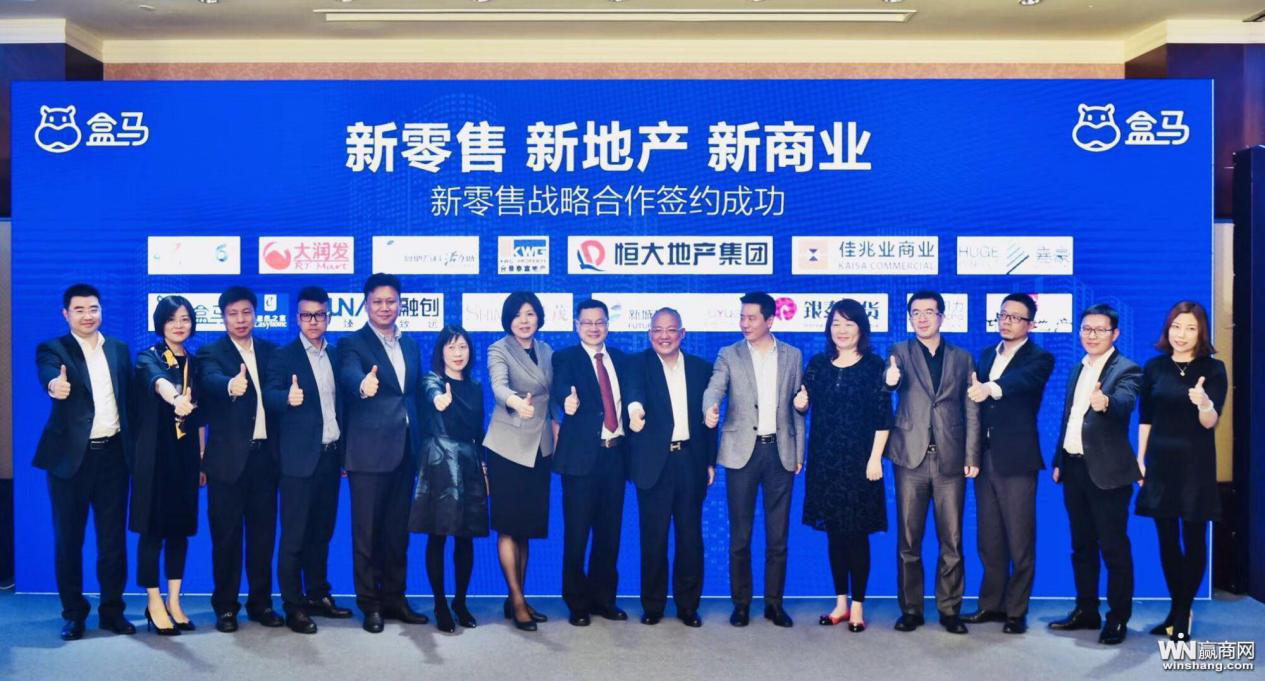
Photo Source: Winner.com
5. On-line Brand Collective Going Off-line to Open Entity Stores
At present, the boundary between the line and the line has become more and more blurred, and the unbounded convergence into the general trend. With the slowdown of online growth, online merchants are "chasing deer" off-line, and even set off a wave of cross-border substantive retail.
Since this year, Tianmao International, Taobao Xinxuan, goblin's pockets, Netease Koala Haishou, Aiqiyi, Xiaohongshu, diary, one, Xiaohongshu, 10 o'clock reading, YOHO fashion magazine, KIKS Shoe Newspaper, Netease Yanxuan, fitness application APP Keep and other well-known online platforms/brands have opened physical stores.
Online platform IP and fans are the biggest support for offline store traffic, while online platform is the precise guide for offline store selection, which is the most fundamental support for online platform to go offline. However, the question whether offline stores can divert online efficiently and cost a lot, and whether they can balance profits, remains to be tested.
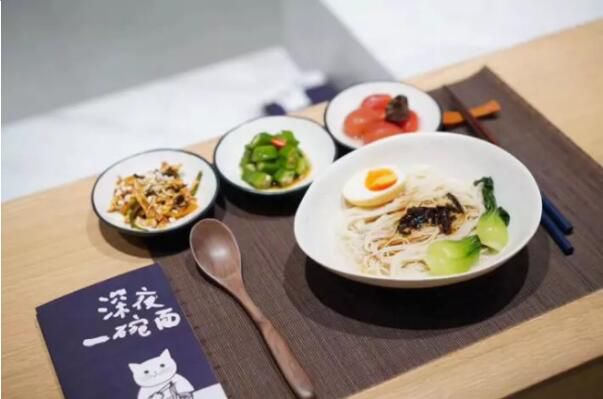
Photo Source of Diary Store Picture: Food and Beverage Visual Research Room
6. New Chinese Tea Drinks Brand Collective "Going to Sea"
Following the overseas distribution of CoCo Duke, Happy Lemon, Sunrise Chatime and R&B Tour Tea brands, the two major popular black brands Xicha and Naixueli Tea in mainland China opened their first overseas stores in Singapore this year. The Herbal Tea Museum, Wang Laoji's first downline store, officially opened in New York.
On November 10, the first overseas store of Xicha opened in Singapore's Ioon Orchard shopping mall on Orchard Road, and in addition to ION Orchard, Xicha has begun preparations for the opening of other direct stores in Singapore.
On December 8, the first overseas store of Nai Xueyi Tea opened in Vivo City, a famous shopping mall in Singapore.
On November 19, the Herbal Tea Museum, Laoji's first offline store overseas, officially opened in New York. It combines traditional museums with fashionable herbal tea shops. There are not only abundant historical materials and exhibitions of herbal tea culture, but also existing herbal tea shops. It is reported that Wang Laoji plans to build 56 such museums around the world.
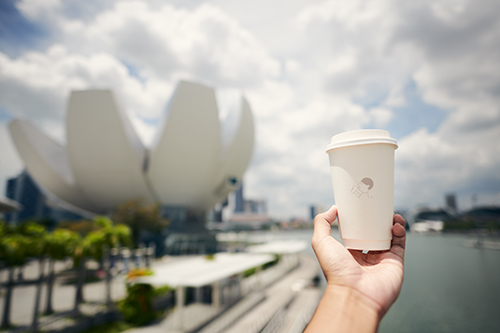
Photo Source: Happy Tea
7. Frequent acquisitions and mergers of brands: more concentrated light luxury brands
This year, mergers and acquisitions among fashion brands are particularly frequent, including high-end luxury brands, light luxury brands, fast fashion, outdoor, sports and other brands, of which light luxury brands are more concentrated. From the business point of view, Chinese brands acquire international brands to expand overseas markets, overseas brand performance is poor sell-off...
Towards the end of recent years, Hong Kong Merchant I.T Group announced that it earned about 10.9% of Swedish designer brand Acne Studios with 486.3 million Swedish kronor, or about HK$423.1 million.
Michael Kors announced a $2.12 billion acquisition of Italian luxury brand Versace, which will be renamed Capri Holdings.
Shanghai Zhihe Fashion Group bought Carven, a French luxury brand, for 4.2 million euros.
Shandong Ruyi has completed a number of brand acquisition transactions this year, including the purchase of a majority stake in Swiss luxury brand Bally for about $700 million and the holding of 51.38% of Libang men's wear by Libang. Libang has granted the franchises of its three major brands Kent & Curwen, Cerruti 1881 and Gieves & Hawkes to Ruyi Group.
Fosun International acquired Jeanne Lanvin SAS ("Lanvin") and Wolford, an Austrian silk stocking brand.
This year, Senma purchased Kidiliz Group, a European mid-high-end children's wear company, for 844 million yuan, and JWU, the parent company of Jason Wu (Wu Jigang), an American Chinese designer, for 5 million dollars. LLC. 11% of the shares entered the mid-high-end women's wear market.
Lachabel Full-owned Sun Company intends to invest 35.34 million euros to indirectly acquire 60% of Naf Naf SAS in French women's wear, and 100% of the brand will be owned after the acquisition is completed.
During the year, Kaiyun Group, the parent company of Gucci, sold four brands, namely Puma, Volcom, Christopher Kane and Stella McCartney.
French women's wear brand Egger sells Chinese ready-to-wear business, including its three ready-to-wear brands, WK, ES and E&Joy; Geris takes over the Belgian designer brand Jean Paul Knot.
In terms of sports and outdoor sports brands, Anta Sports acquired Amafen, the parent company of Archaeopteryx Birds, for 4.6 billion euros (about 36 billion yuan); Pick acquired Osoka, the outdoor sports brand; and Canada Goose, the Canadian luxury down brand, for 32.5 million Canadian dollars (about 170 million yuan) acquired Baffin, the Canadian outdoor shoe and footwear company.

Photo Source: Michael Kors'official microblog
8. Channels of Luxury Brands'Power Line
With the increasing proportion of luxury goods consumed by the millennial generation, in order to cater to their new shopping methods, luxury goods began to develop online channels, such as entering third-party e-commerce platforms, building free electronic malls and so on.
Dior, Chloe and Givenchy tried to build Weixin Mall. Dior also launched a brand-new official website at the end of the year to sell women's ready-made clothes online for the first time.
Gucci opened online shopping service on China's official website last year, and this year, it cooperated with global fashion e-commerce OFashion orange to open a third-party e-commerce platform and Gucci's official website backstage in China for the first time; Ralph Lauren's first official online flagship store in China; Buccellati, an Italian high-end jewelry brand, announced its entry into TOPLIFE, a luxury platform based in East Beijing.
At present, TOPLIFE has ushered in 31 brands, 73 Tianmao Luxury Pavilion and more than 100 international hard luxury brands.
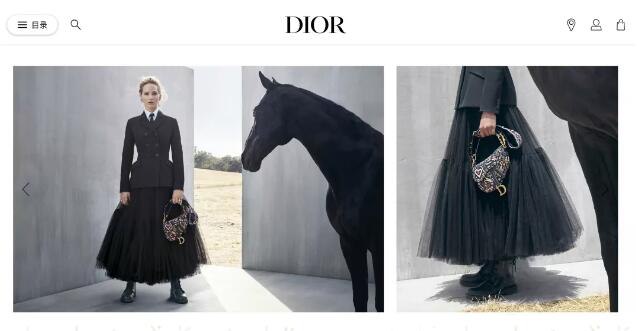
Photo Source: Dior Official Website Screenshots
9. International Fast Fast Fashion Brand's China Market Decline: Shop Opening Volume Drops
International Fast Fashion Brands are declining in the Chinese market. In 2018, they continued to close stores and their performance declined collectively.
During the year, TOPSHOP, the founder of British High Street, announced the closure of the official flagship store of Tianmao and the failure of the Chinese physical store plan. NEW Look, the British fast fashion brand, announced its withdrawal from the Chinese market. More than 21 American fast fashion Forever stores were closed. Inditex Group, Zara's parent company, announced the continuation of the closure plan.
In 2018, the number of fast fashion brand stores dropped by nearly 50%. According to Winner Business, the top ten fast fashion brands, including H&M, ZARA, UNIQLO, MJstyle, MUJI, NEW LOOK, UR, C&A, Forever 21, GAP, totaled 264 new stores in the mainland, only 56% in 2017.
The growth rate of fast fashion brands declined sharply in 2018, Zara's first half annual sales increased by only 2%, the worst performance in the past three years. Gap's second quarter sales decreased by 0.5% to $1.225 billion, while Mango's annual sales fell by 29% to 2.19 billion in 2017. In the first half of 2008, H&M's net profit fell 33% to 7.215 billion Swedish kronor, down 3.7% from 11% in the same period last year.
Fast fashion is declining. On the one hand, shopping malls no longer regard international fast fashion brands as "princesses". On the other hand, with the change of Chinese consumers'consumption habits, light luxury fashion brands, designer brands, brand collection stores and so on began to rise, speeding up the market share of catering.
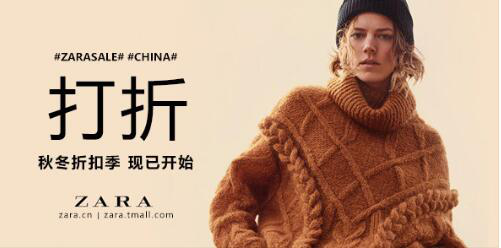
Photo Source: ZARA Weibo
10. Tide of Star Restaurant Closing
Star restaurant, in the early days of its opening, is surrounded by the star's aura, and its popularity is rapidly booming. When the star's aura fades, the essence of catering still lies in the product. Restaurants with high prices and poor products have been eliminated by the market one by one.
At the beginning of March 2018, Zhang Jiajia's "rolled-up" lobster was closed for liquidation, and Chen Xiaochun's "seven masters" brisket quietly withdrew after the year.
The famous host Mengfei's catering brand "Mengfei's noodles" Suzhou store closed in the first half of the year. Mengfei's noodles closed a third of its stores in three years, and there are only six in Yingfei stores at present.
Huang Lei and Meng Fei's "Huang Liang Yi Meng" hotpot store closed at the end of 2018.
Hot pot shop, which is opened by six stars, Li Bingbing, Renquan and Huang Xiaoming, is closed in Shenzhen Royal Court Square.
Mr. J. Diner restaurant opened by Jay Chou in Shenzhen has also been closed.
Han Han's restaurant brand "Nice to meet you" has only one shop left in Shanghai and has been appealed for salary arrears.
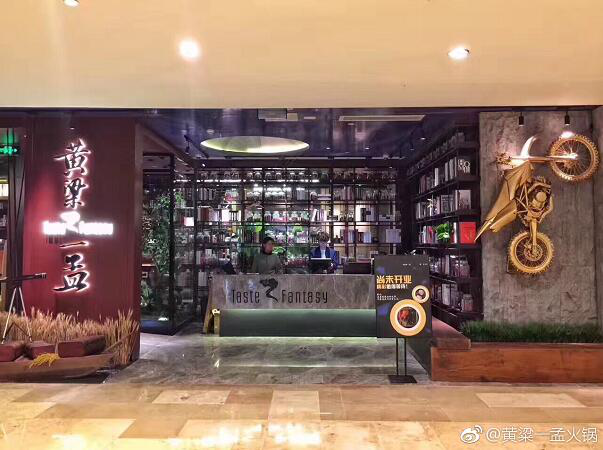
Photo Source: Huangliang Yimeng Hotpot Weibo
11. Coffee Market Competition: Starbucks, Reichen and Coffee Show "Three Kingdoms Kill"
This year, the coffee market is in full swing. Starbucks and two Internet coffee brands, Ruixing Coffee and Lianyang Coffee, staged a "Three Kingdoms Kill". First of all, Ruisheng coffee has become the biggest "troublemaker". Ruisheng coffee officially opened its trial business on January 1, 2018. During the year, it opened 2,000 stores crazily. The growth rate is amazing, but the cost is also huge, with a net loss of 857 million yuan in the first nine months. During the period, Starbucks was also publicly accused of monopoly, and sued by legal means, openly speaking to surpass Starbucks in the Chinese market.
Lian Coffee has opened several large-scale physical cafes in the five cities of Guangzhou, Hangzhou and Shenzhen in the north, accelerating the pace of offline expansion. By the beginning of 2019, even the first-tier cities such as Guangzhou, Shenzhen and Hangzhou will have a number of image stores open one after another, generally in the core city landmark location, the number of stores is about 50 to 60, of which the larger proportion is in East China.
The increasingly fierce competition in the coffee market is also pushing the industry to upgrade. Starbucks finally started to launch online channels, while Ruisheng Coffee and Liansheng Coffee focused on offline integration.
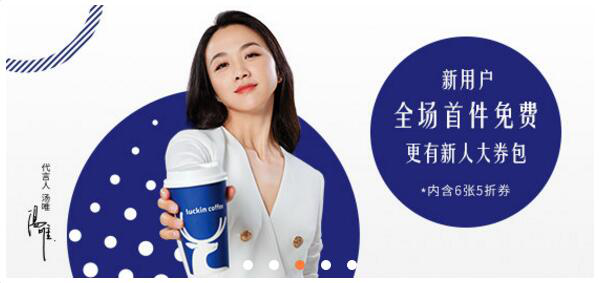
Photo Source: Ruisheng Coffee Weibo
12. Haidilao's Listing: The First Large Domestic Catering Enterprise to Go to Hong Kong for IPO
On September 26, the highly anticipated domestic chafing dish restaurant leader Haidilao (6862.HK) landed on the Hong Kong Stock Exchange. On the first day of its listing, its opening price was HK$18.8, up 5.6% from its offering price. Its share price rose to HK$19.64 per share, and its market value once exceeded HK$100 billion. However, on the same day, all the way down, once down to HK$17.8 per share, almost broke.
As the first large domestic catering company to go to Hong Kong for IPO, Haidilao now owns and operates 320 restaurants from 112 in 2015 to the end of 2017, including 296 restaurants in mainland China and 24 restaurants in Taiwan, Hong Kong and overseas in Singapore, Korea, Japan and the United States.
Regarding the specific investment direction of listed fund-raising, Haidilao said that after the listing fund-raising, 60% of the fund-raising will be used for expansion, 20% for research and development and implementation of new technologies, 15% for repayment, and 5% for general operating funds.
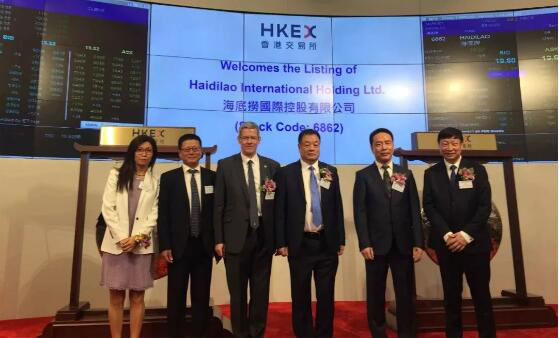
Photo Source: Haidilao
13. Yonghui Supermarket: Investing in Wanda Business Management and Stripping off Yonghui Yunchuang
On the evening of December 4, Yonghui Supermarket posted more than ten announcements at one time, including the transfer of 20% of Yonghui Yunchuang's equity to Zhang Xuanning with 394 million yuan, the transfer of 1.5% of Wanda Business Administration with 3531 million yuan, the dissolution of concerted action by Zhang Xuansong and Zhang Xuanning, and the implementation of the rotational chairman system.
According to the analysis, Yonghui's divestiture of Yonghui Yunchuang is due to the loss of the performance of the new retail business sector, which has dragged down the overall performance of listed companies. From January to September this year, Yonghui Yunchuan generated 1.478 billion yuan in business income and further increased its net profit loss to 617 million yuan. After the stripping, Yonghui will gather more traditional supermarket business.
Wanda shares, mainly looking at Wanda's huge property resources, will help Yonghui line strategic expansion.
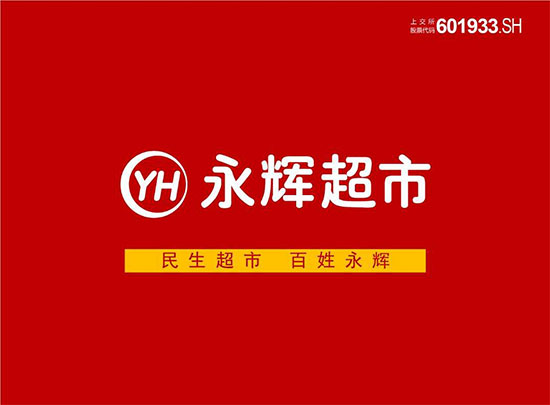
Photo Source: Online Public Information
14. Wumei: Zhang Wen's release from prison, Wumei acceleration
In 2018, Wumei ushered in a tremendous change. Various actions were taken frequently, and the pace of Wumei was accelerated in an all-round way.
Firstly, Wumart founder Zhang Wen was acquitted on May 31 and returned to Wumart after being released from prison. In early January, Wumart announced that "multi-point Dmall" was the main way for Wumart to transform its new retail channel. Then it purchased 21 stores in North China of Lotten Matt, a Korean supermarket, for 1.42 billion yuan. In the first half of the year, the number of new stores exceeded Yonghui. At the same time, during the year, we upgraded stores on a large scale to improve efficiency; joined hands with Tencent and multi-point Dmall to accelerate digital transformation and new retail; acquired convenience stores in Beijing neighborhood; launched community supermarkets in small formats... Under the leadership of Zhang Wen, Wumei is ushering in a new development opportunity.
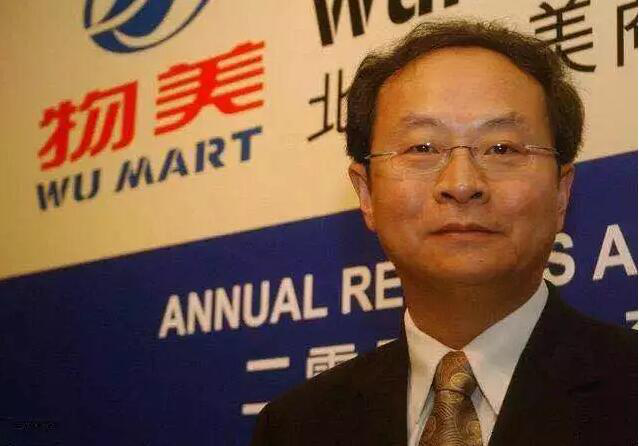
Wumart founder Zhang Wen Photo Source: Businessmen
15. Dolce & Gabbana's suspected humiliation against China has seriously damaged China's business
In mid-November, Dolce & Gabbana, a well-known Italian brand, triggered a humiliating incident because of a video of "eating with chopsticks", which continued to ferment and worsen due to improper handling of public relations.
After the incident, Chinese e-commerce companies such as Alibaba, Jingdong, Suning, NetEase Koala, Temple Treasury, Festival, Ocean Wharf and Xiaohongshu collectively withdrew their DG products. Shortly thereafter, Yoox Net-a-Porter Group, the world's largest luxury goods e-commerce company, and Farfetch, a high-end fashion website in the United States, also dropped DG products.
It is understood that China is one of the important markets of DG, and the humiliation of China will bring heavy losses to DG. At the same time, the brand in the domestic offline stores also appear cold. This is the most serious brand PR crisis in 2018. The negligence of understanding regional culture, disrespect for market consumers and arrogant attitude towards dealing with it are the fatal causes of Dolce & Gabbana's humiliation of China, which will become a lesson for many international brands in the future.

Photo Source: Online Public Information
Summary: China's retail market in 2018 is a great change of the old and the new. The law of the market is fully embodied here, that is, the survival of the fittest and the survival of the fittest.
From: Winner Network Zhou Caiyun